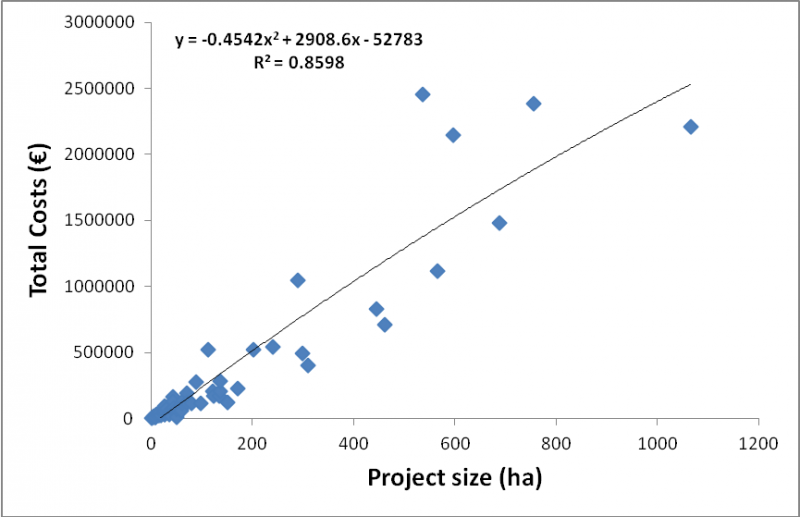D1.4 reviewed the literature on the costs and benefits of river restoration. Data were collected in a database in order to empirically investigate the costs of river restoration measures throughout Europe. Also, to inform future cost-benefit analysis (REFORM D5.2), descriptions of the specific hydromorphological measures found in the database and their potential impact on aquatic plants, macroinvertebrates, and fish were provided.
The cost database contained cost data for 766 restoration projects from Germany (n=454), Spain (n=228), the United Kingdom (n=54), and the Netherlands (n=30). This cost data will help river basin managers by providing examples of how such cost data could be gathered and analysed, in addition to providing representative values for the costs of some restoration measures.Regrettably but perhaps not surprisingly, the cost data for most measures varied considerably, which restricted the conclusions that could be drawn from the database. This suggests that investing efforts in gathering and incorporating cost information into decision making is a prerequisite to increase the efficiency of river restoration activities.

Total cost curve for watershed reforestation. Graph: Manuel Lago.
The economic benefits of hydromorphological river restoration were proxied through the environmental benefits and services provided by restored river ecosystems and/or riparian zones. As a rule, a restoration project was treated as a bundle of ecosystem services, which made it very difficult to determine values for these services individually or as a whole. In the studies reviewed, economic benefits were determined using contingent valuation or discrete choice experiments. The majority of the economic benefits studies reviewed assumed that local households were the main beneficiaries of river restoration.
Further Links
Link to D1.4 on the REFORM website: http://www.reformrivers.eu/deliverables/d1-4
Authors
Manuel Lago, Ecologic Institute
